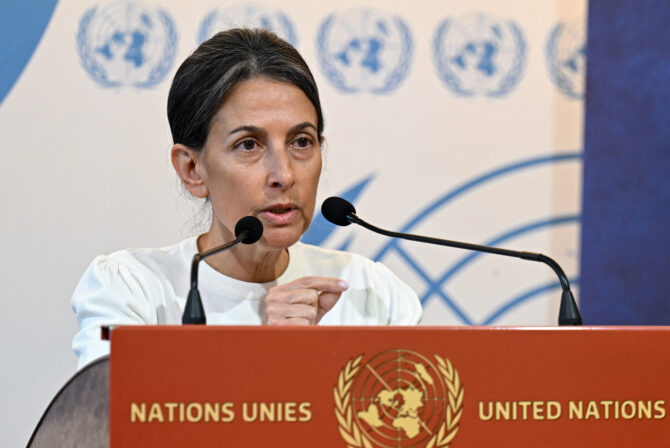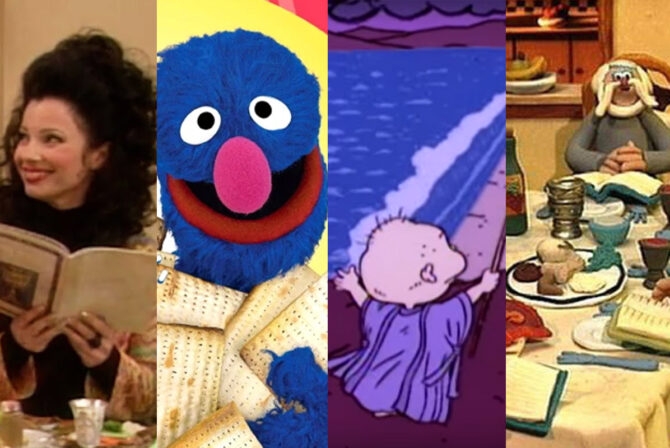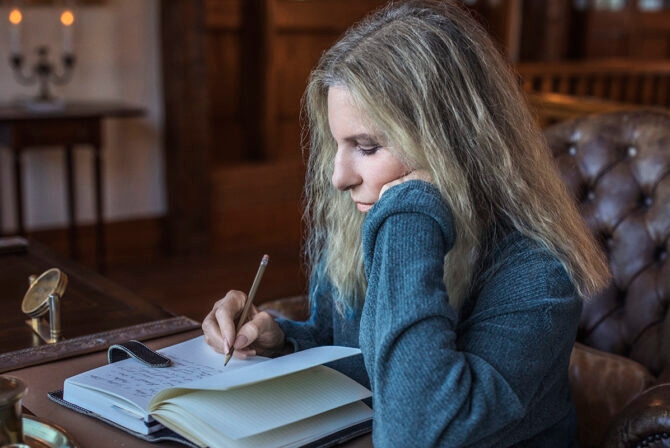This post is part of our Torah commentary series. This Shabbat we read Parashat Ekev. To read a summary of the portion and learn more, click here.
Driving home from my sister’s house last night, I did what so many parents do when it looks like their kids might fall asleep in the car and it would be highly inconvenient if they did so. I flapped my lips for 25 minutes about whatever I could think of. We reviewed all the major Jewish holidays and what they represent (read: what we eat on the holidays). We sang the unabridged version of “I’ve Been Working on the Railroad,” (someone’s always in the kitchen with mom-my, someone’s in the kitchen they know-o-o-o) and we talked about who’s a cousin and who’s a friend and how the brake pedal and the gas pedal work and why some people choose to get tattoos and how much we like meatballs. Then, Maya decided it was her turn to tell a story.
Five exits later, and Maya’s story was still going. In her tale, she and Daddy went for a walk, saw a ghost with big eyes, met a giraffe who wanted a bath, ate some apples, swam in a lake, took a nap, got scared, saw a fire-breathing dragon, got saved by Avi (Maya’s twin), tripped on a rock, said “it’s OK, you’re alright, it’s no big deal,” to each other, and got mosquito bites.
Maya would have kept going but at some point her sister demanded airtime and then there we were, in our driveway. Both kids were awake (perhaps too much so); mission accomplished.
My kids–and I’m sure yours, too–like to tell stories. “True” stories, made-up stories, stories that have been told to them before, stories they read in a book and reinterpret for anyone who will listen. And as they get older, the stories get more elaborate and the need to be heard gets more intense. Some days, it seems like we’re just talking nonstop, telling stories back and forth to each other as we move about our day. Sometimes our stories are wholly meaningful–like when I tell them about the day that they were born and who was at the hospital waiting to meet them. And sometimes, the stories are silly and meaningless–like when they’re stalling at bedtime and plead for just one more story and I find myself talking about a frog’s birthday party deep in the forest where everyone sits on rocks and eats cupcakes made of twigs and leaves.
I come from a long line of story-telling people. In fact, the stories I was told as a kid were often elaborate tales that involved car trips to the bowels of Brooklyn so that I could lay eyes on the sites and listen to the sounds of the stories of my family. Sometimes, photographs, silent movies, and newspaper clippings accompanied the stories. Often, at bedtime, I would ask my dad for a story about his childhood, and he’d happily oblige, telling tales of bungalow colonies and stickball games and a box turtle named Timothy Myrtle and the day he first laid eyes on my mother. Somehow, there was always a new story to tell, a new detail to learn about the family I knew so well. I’d sink deeply into my pillow and let the words fall around me, a blanket of history–my history–that made me feel proud and safe and known.
A children’s commentary on this week’s torah portion, Ekev, suggests that Moses is the storyteller of the Israelites. This week, he’s still at it–talking to them before they enter the Promised Land, reminding them, essentially, of where they’ve been and who they are. He reminds the Israelites (again) of their covenant with God and of the commandments. And by doing so, Moses is reminding the Israelites of their identity, of what binds them to their religion and to each other.
We know that on Passover we’re meant to tell and retell the story of the Exodus from Egypt so that we may, from generation to generation, imagine ourselves as if we came out of Egypt and made that same pilgrimage. But really, this re-enactment is happening all the time–in Jewish texts, and in our lives. The stories we tell our kids become their history. They don’t have to have lived it for them to take ownership of it. In some cases, they were too young to remember. In others, they weren’t even born. But just the same, the chapters of our lives are available to them if we choose to share them. Slowly, as they learn our stories and create their own, they build an identity, begin to shape a life for themselves measured in no small part by the morals of those tales.
Who do you want your kid to be? Start talking.
To read the previous posts in our Torah MOMentary series, click here.
Like this post? Get the best of Kveller delivered straight to your inbox.







